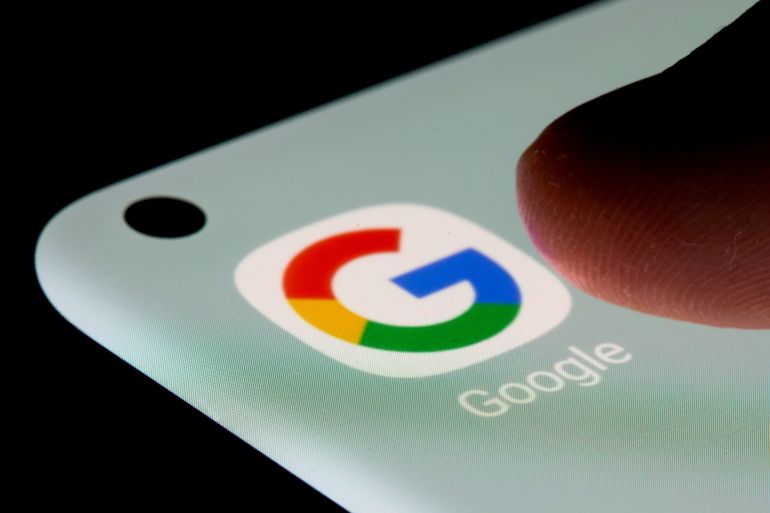UK Supreme Court blocks $4.3bn class action against Google
The decision in the data privacy case upsets a string of similar claims waiting in the wings against other companies, including Facebook and TikTok.

The United Kingdom’s Supreme Court has blocked a planned 3.2 billion-pound ($4.3bn) British class action against Google over allegations the internet giant unlawfully tracked the personal information of millions of iPhone users.
Britain’s top judges unanimously granted Google an appeal against the country’s first such data privacy case on Wednesday, a move that upsets a string of similar claims waiting in the wings against other companies, including Facebook and TikTok.
Keep reading
list of 4 itemsWhy are Google and Apple still silent on Russian censorship?
Alphabet beats expectations on Google ad spike
South Korea fines Google for abusing its dominant position
The landmark case brought by Richard Lloyd, a consumer rights activist and former director of Which? magazine, sought to extend Britain’s class action regime to include compensation claims for the misuse of data – even if there is no obvious financial loss or distress.
Google said the claim was related to events that took place a decade ago and were addressed at the time.
“People want to know that they are safe and secure online, which is why for years we’ve focused on building products and infrastructure that respect and protect people’s privacy,” a Google spokesperson said.
Lloyd alleged that Google secretly took more than five million Apple iPhone users’ personal data between 2011 and 2012 by bypassing default privacy settings on the Safari browser to track internet browsing histories.
Google used this to sell a targeted advertising service, Lloyd alleged, adding that the company earned $80bn from advertising alone in 2016.
European Court of Justice ruling
Separately on Wednesday, a top European Union court rejected Google’s appeal of a 2.4 billion-euro ($2.8bn) fine from regulators which found the company abused its online reach by giving its own shopping recommendations an illegal advantage in search results.
The European Commission, the 27-nation bloc’s competition watchdog, punished Google in 2017 for unfairly favouring its own shopping service over competitors. The European Court of Justice’s General Court ruled that it “largely dismisses” Google’s appeal of that antitrust penalty and is upholding the fine.
“The General Court thus rules that, in reality, Google favors its own comparison shopping service over competing services, rather than a better result over another result,” it said in a press release.
Google said it made changes in 2017 to comply with the European Commission’s decision.
“Our approach has worked successfully for more than three years, generating billions of clicks for more than 700 comparison shopping services,” a Google statement said.
The fine was part of an effort by European regulators to curb the online giant’s clout on the continent. It was followed by two other blockbuster antitrust penalties that the commission slapped on Google, totalling 8.25 billion euros ($9.5bn), which the company also is appealing.
The commission’s investigation found that Google unfairly directed visitors to its comparison shopping service, Google Shopping, to the detriment of its rivals. EU regulators demanded Google change the way it provides search results in Europe.